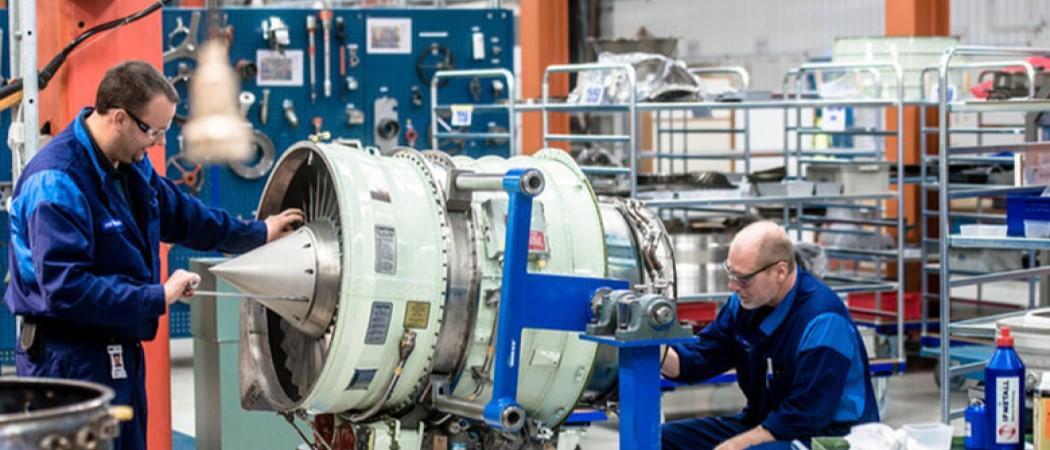Although they can once again fully engage in the large-scale, cross sector projects, UK companies joining as the half-way point is reached may find it hard to become fully integrated – and doubts remain over funding

Photo: GKN Aerospace
European public-private research partnerships say they are looking forward to UK-based companies becoming more involved once the agreement for the UK to associate with Horizon Europe kicks in next year. But uncertainty remains over their future status in the projects and over funding.
As one example, there’s interest on both sides, of the UK stepping up involvement in Processes4Planet, which is developing sustainable industrial processes. In the days after the agreement was reached for the UK to join Horizon Europe, UK companies, some of which were involved in the predecessor partnership, were keen to take part in a brokerage event, said Àngels Orduña, executive director of A.SPIRE, the industry association behind the partnership.
At the same time, current members are happy to have UK companies and research organisations on board. “Each country has expertise that they are a bit more developed in, and that they can bring to the community,” said Orduña. “Their expertise will be brought back there, but our expertise will [flow] back to the UK. And that is the greatness of Horizon, it has always been.”
But one roadblock for resuming collaboration may be to what extent resources have been committed to non-EU work. Without access to EU-funding, UK companies and research organisations were not standing still, and hopped on projects financed by the UK government. They might have access to Horizon now, but still be tied up in other projects, Orduña noted.
And it may take time to get everyone back in the EU funding loop. “Those that have kept tuned in will move quicker. The others will need time to think about their strategy,” said Orduña.
Left out of Horizon Europe, some UK companies continued to answer EU calls, but the uncertainty around the UK’s status and the extra level of complexity caused by the need to get funding from the UK guarantee scheme was discouraging on both sides.
“The political uncertainty in terms of eligibility and funding has caused a major drop in UK participation,” said a spokesman for 6G-IA, which represents industry on the board of the Smart Networks and Services joint undertaking.
“This uncertainty has not just led to UK organisations deciding not to participate, but also led to many EU organisations preferring not to have UK partners in their project consortium to avoid potential associated problems,” he said.
Key players
There are currently 49 public and private partnerships in fields ranging from aviation to health – with ten more on the drawing board. Before Brexit, UK industry, public authorities and research organisations were key players in the cross sector projects, which pool EU, national and private money to fund strategic research and development.
Over the last two years, the uncertainty about association meant UK entities has little say in shaping the research partnerships, and no, or very limited, access to technical committees where the strategic priority setting takes place.
The Commission has confirmed that once the Horizon Europe association deal comes into force on 1 January 2024, UK organisations will be able to access funding on equal footing with other associated Horizon countries and normal rules and procedures will apply. But questions still remain.
For example, the Clean Aviation joint undertaking received two applications from UK entities in a recent call, but is awaiting guidance from the Commission on whether it can go ahead and award membership, according to a Clean Aviation spokeswoman.
In some cases, UK companies have arms-length involvement in governance and technical committees, as members of trade associations such as Hydrogen Europe, which is a member of the EU’s Clean Hydrogen partnership.
Similarly, global companies headquartered in the UK have been less affected by the UK’s absence from Horizon Europe because they could access the partnerships through EU-based affiliates. That is the case for the Clean Aviation partnership, of which GKN Aerospace is a founding member, through branches in Sweden and the Netherlands, and Rolls-Royce, through its German subsidiary.
Even for UK companies that are fully integrated into a partnership, a big question remains over the transition from direct UK government funding to EU funding in future calls.
Partnerships will be expecting to receive their fair share of the UK’s annual €2 billion contribution to Horizon Europe. If there is uncertainty about this, it could have an impact on the planning of call topics going forward. The Commission is expected to issue guidance on how the additional budget will be allocated.
While guidance is awaited, for the UK companies that kept taking part in the partnerships despite the uncertainty, the association agreement now paves the way to bring them back as full partners. “The association with Horizon Europe will definitely allow them to participate to their full potential again - and on equal terms,” said Orduña.





 A unique international forum for public research organisations and companies to connect their external engagement with strategic interests around their R&D system.
A unique international forum for public research organisations and companies to connect their external engagement with strategic interests around their R&D system.